F1 and the future: ‘Max factor’, race calendar, Netflix and a return to Africa
Commercial chief Sean Bratches speaks about the vision of Formula 1 and its owners Liberty Media
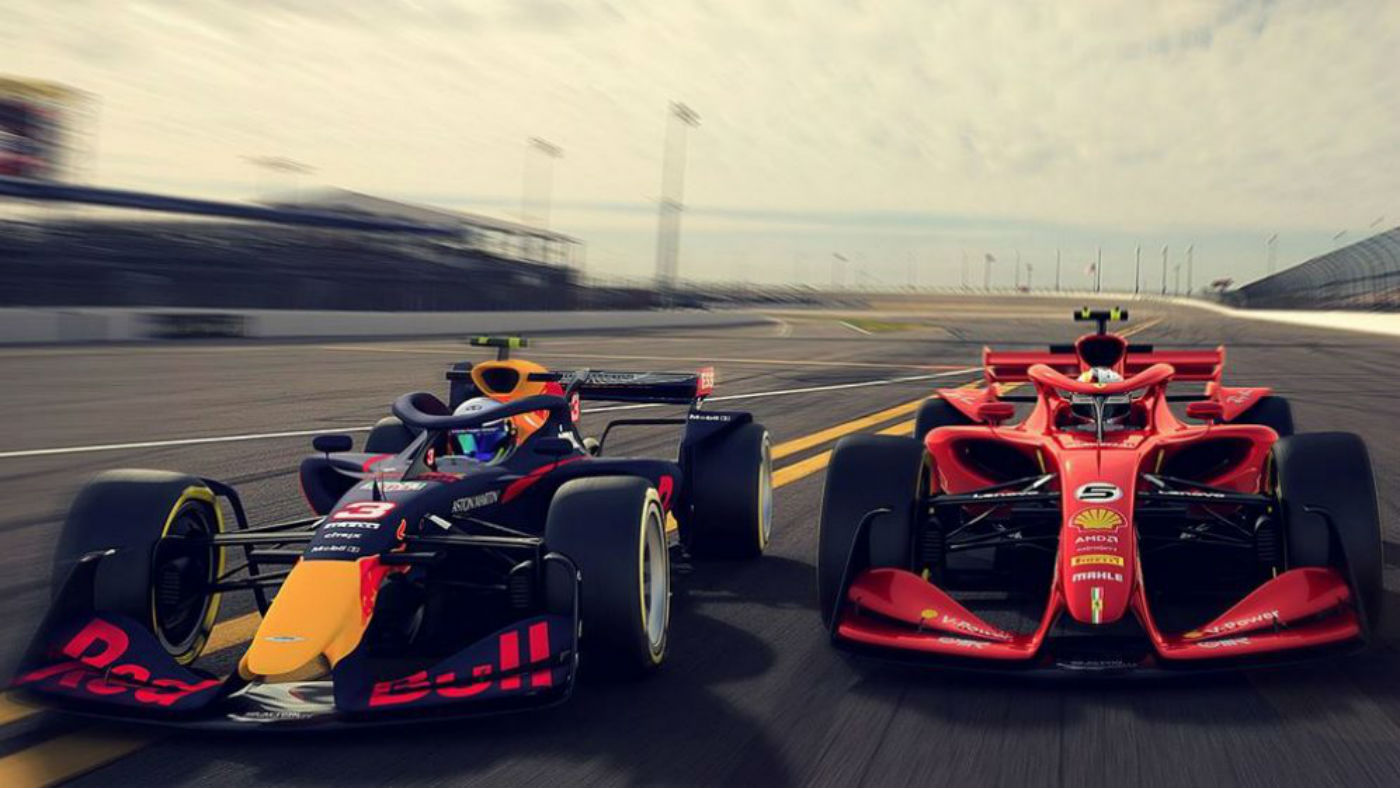
A free daily email with the biggest news stories of the day – and the best features from TheWeek.com
You are now subscribed
Your newsletter sign-up was successful
When Liberty Media finalised the deal in 2017 to acquire Formula 1 the American company knew it was buying a brand that still had massive growth opportunity despite its global status.
In the two years since the takeover F1 bosses have started to market the motor sport with a stronger digital presence and innovative content such as the Netflix Drive to Survive documentary series.
However, F1 is nearing a crossroads on and off the track. A new set of rules and regulations will be brought in from 2021 once the updated Concorde Agreement is confirmed. There’s also big plans for new races and the calendar.
The Week
Escape your echo chamber. Get the facts behind the news, plus analysis from multiple perspectives.

Sign up for The Week's Free Newsletters
From our morning news briefing to a weekly Good News Newsletter, get the best of The Week delivered directly to your inbox.
From our morning news briefing to a weekly Good News Newsletter, get the best of The Week delivered directly to your inbox.
One person who is fully involved in the future and growth of the sport is Sean Bratches, Formula 1’s managing director of commercial operations.
On Thursday he spoke to media and delegates at the Sport Industry Breakfast Club in London and gave an insight into the world of F1.
The former ESPN executive spoke about how the Max Verstappen “factor” was key in bringing the Dutch Grand Prix back to the schedule and also the potential of hosting a race in Africa.
Bratches also discussed Mercedes’s domination, the future of the British Grand Prix and what F1 can learn from English football’s Premier League. Here’s what he had to say...
A free daily email with the biggest news stories of the day – and the best features from TheWeek.com
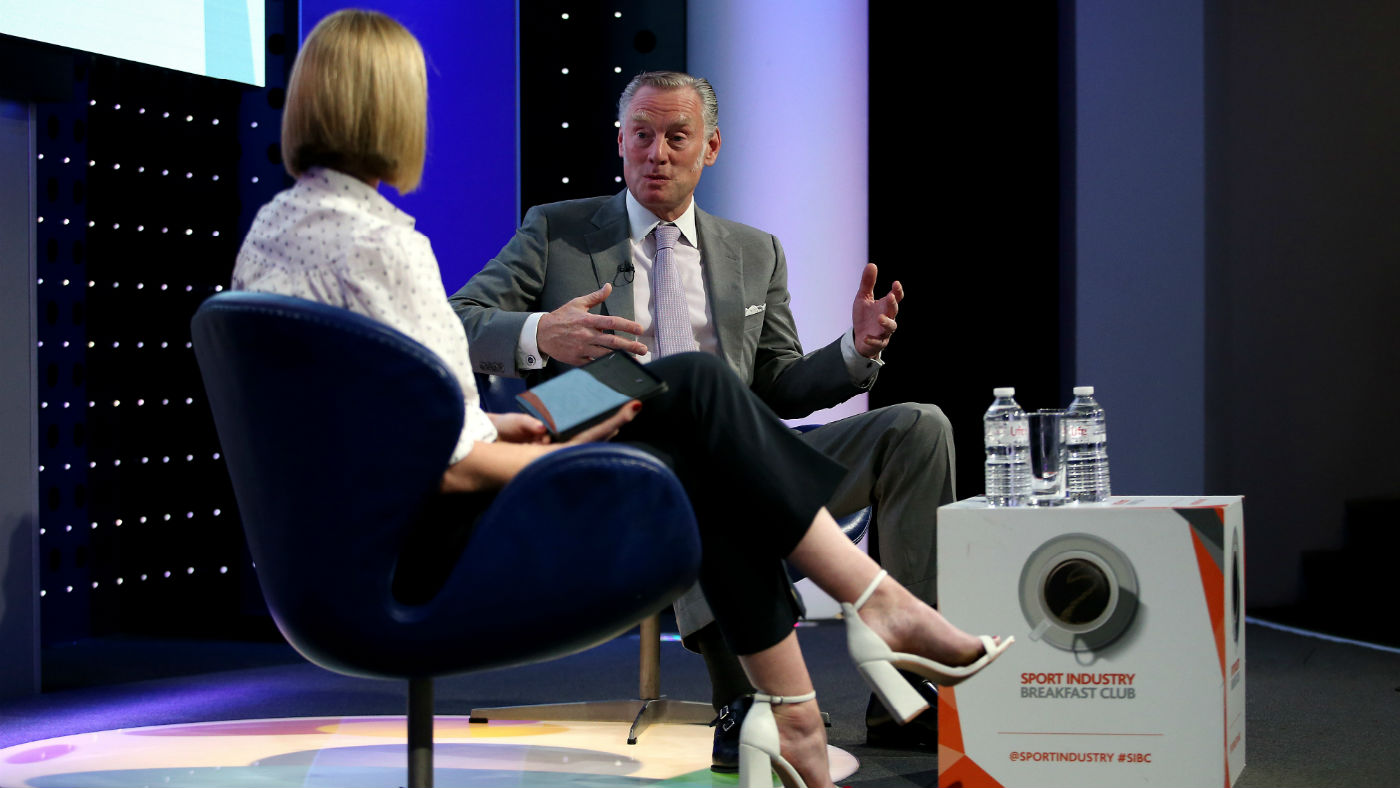
F1 2020 calendar: how many races?
“When you look at the complexion of the grand prix schedule in Formula 1 it’s extremely dynamic. It has been for 69 years and I suspect that it will continue to be. We have 21 grands prix this season, we had 21 last season, and that’s never occurred before. We expect to have 21 next year as well.
“We are trying to figure out what the complexion of that is. There are two approaches to this; we have been trying to be very proactive in terms of where we race and we want to see cities, states and countries that align with our brand. That’s really important.
“But at the same time there is a tradition and history in Formula 1.”
Increasing the number of races
“In an ideal circumstance we would have, in some order, all the races in the Asian markets, then the Americas then the European markets. That would create a lot of synergies, efficiencies and give us bandwidth to go a lot higher in terms of the number of grands prix.
“But there are contractual obligations: Melbourne must be first, Abu Dhabi must be last in the current contracts, Monaco always races on this date, you need a three-week regulation break in the grand prix season...
“The great philosopher Mike Tyson once said, ‘everyone’s got a strategy until they start getting hit’. I’m not sure we’re going to get there but we are going to try and make it [the calendar] as efficient as we can.”
‘Max factor’ and the Dutch GP
“About a year ago a constituency from Holland came to us and a large part of this was a result of the ‘Max factor’.
“We spend a lot of time thinking about where we want to race. We want an appropriate proportion between the Asian marketplace, the Americas and Europe and an appropriate proportion between historic circuits, purpose-built tracks and street/city tracks in different locations.
“Zandvoort is extraordinary - it’s right on the beach. I think that adds nicely into the mosaic and tapestry that is the current complexion of our circuits. It’s going to be an exciting one and I think there’s a significant amount of investment that they are obligated to create overtaking and excitement on the circuit.”
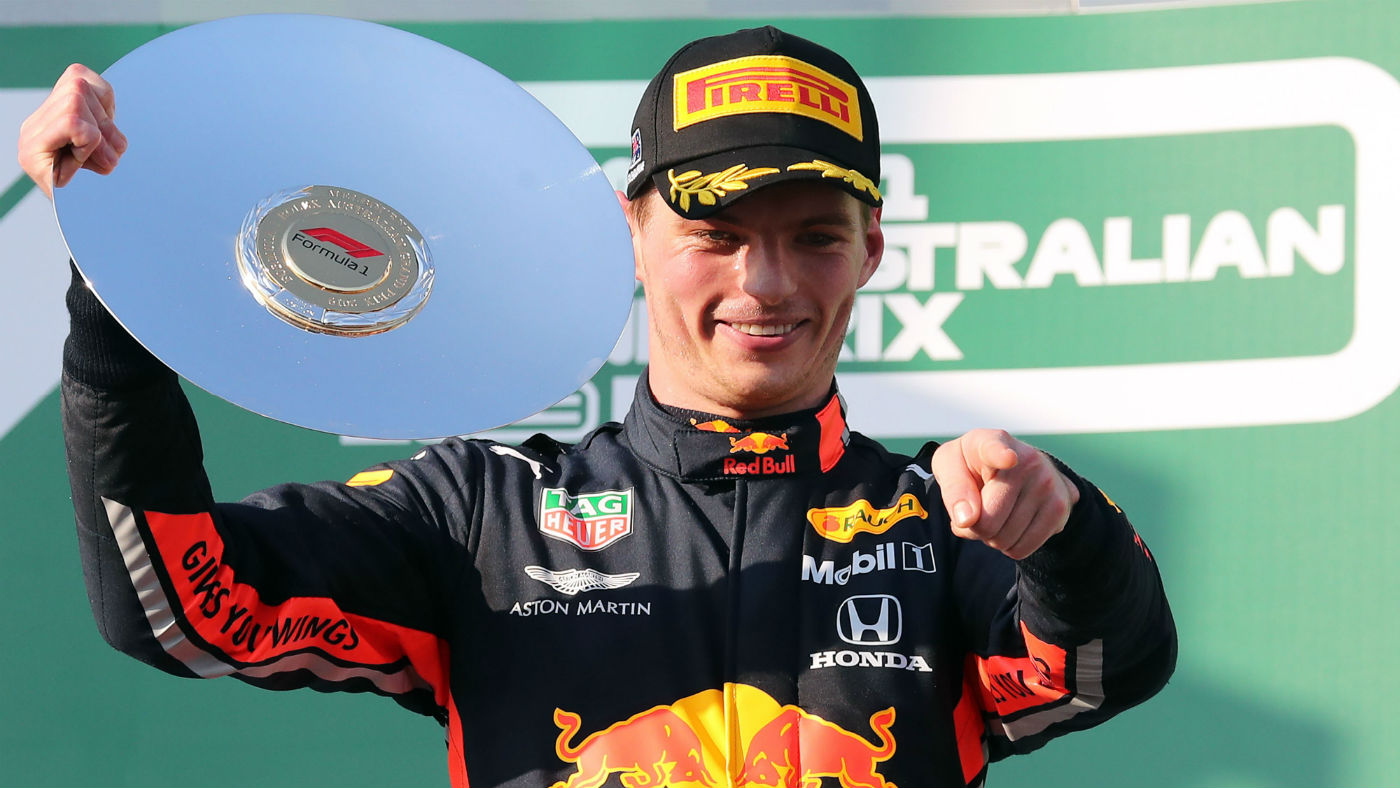
All about the racing
“Formula 1 was not a commercially-developed entity when Liberty acquired it. Not only did it not have a research department, it [also] did not have any research on how fans perceive the sport.
“We did a global brand study and one of the things that came out of that was it’s really about racing. Speed is inherent, but we want overtaking.
“So Ross Brawn [F1 managing director of motorsports and technical director] has hired a team that consults with incumbent circuits and also ensures that circuits are committed to develop overtaking areas and make them world-class, because that’s important.”
Unleashing the drivers on Netflix
“The drivers are a significant portion of how we present the sport. One of the things we found from the global brand study was that Formula 1 was perceived to be this exclusive sport.
“While we want to maintain some degree of exclusivity we want to create avenues in which people can understand. We relaunched our digital platforms, we are doing a lot of things.
“The Netflix series was really to address the fans’ desire to understand the emotive aspects of the drivers. We thought this was an opportunity to unleash them. They are very marketable aspects of the sport - and in any sport you have bigger characters than others.
“We haven’t announced anything yet for series two, but I’m an optimist by nature and I think we’re going to have one.”

Making F1 unpredictable - like the Premier League
“One of the things we are trying to do is create a little bit less predictability in the sport. We do analysis of the Premier League and since the 2014-15 season the bottom three teams have either beaten or drawn with the top six teams 29% of the time.
“Leicester City aside, there’s not a lot of hope in those bottom three teams’s fanbases to win the Premier League, but they know they have the opportunity to win or get a point [in matches against the top teams].
“That’s not the case in Formula 1 and there’s an opportunity to address that. This sport will continue to thrive and we think the best days are in front of us. We have got a lot of plans to make sure that happens.”
Mercedes dominance
“When you look at the history of Formula 1 there’s always been a dominance factor throughout the years and the sport has thrived.
“That said, we think there is a higher ground for it. We want more continuity in terms of our teams and we need to create a better business for all the constituencies within the sport - that’s really important.
“While this [Mercedes dominating] is occurring now, it’s not precedent, but more unpredictability we think is a good thing.”
What happens when Lewis Hamilton calls it day?
“The same way it survived when [Juan Manuel] Fangio hung his cleats up, or [Jackie] Stewart, [Alain] Prost, the list goes on and on. The wonderful thing about this sport is it’s not dependent on any one individual or any one brand.”
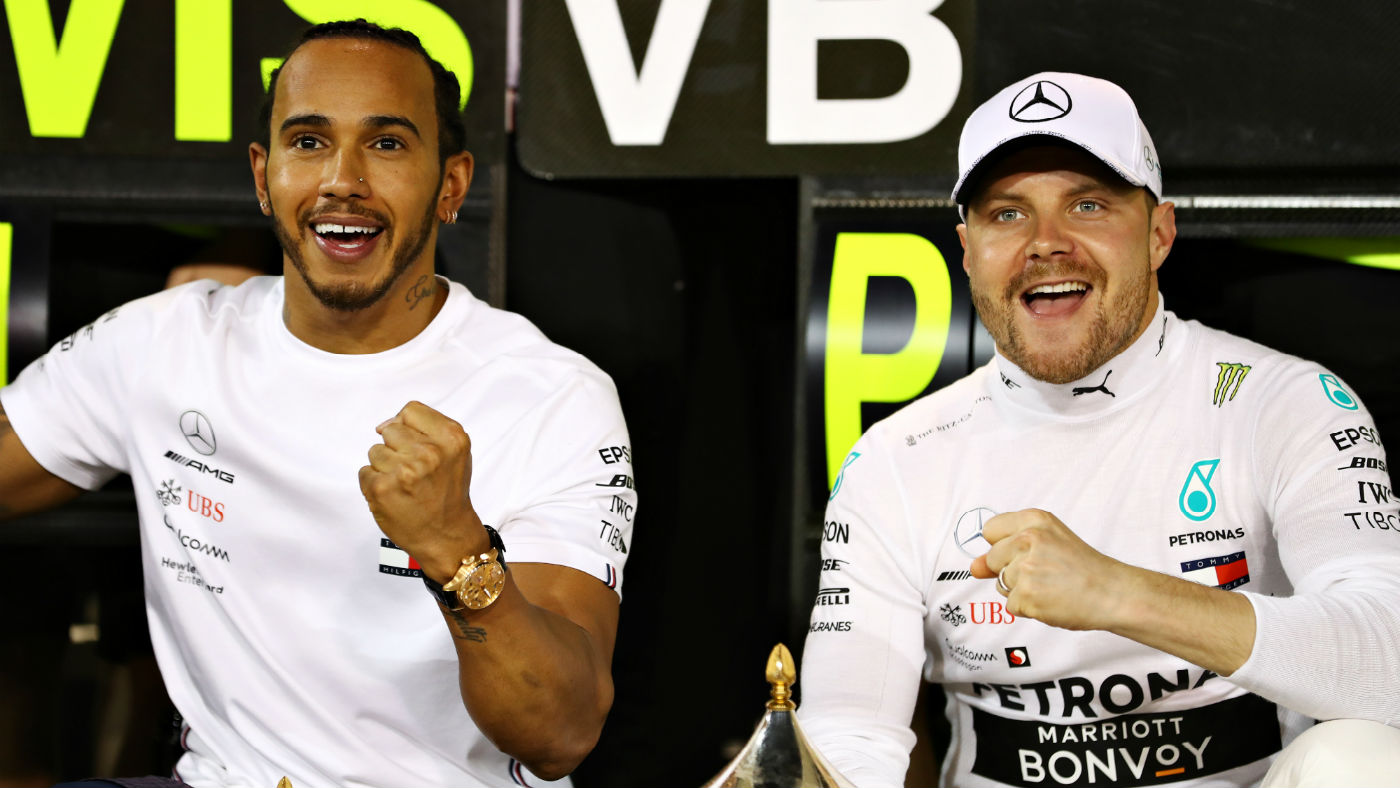
Change of mentality from motor sport to entertainment
“It was a very under-commercialised sport; 2018 was the 68th year of the sport and there had never been a marketing campaign. We have started to market the sport and rebuilt our digital suite of platforms.
“There’s a lot of opportunities and we are starting to do a lot of things which are pivoting us from a motor sport company to a media and entertainment brand.
“That’s one of the key opportunities that Liberty saw. While we take that [the racing] seriously we also want to create an entertainment brand around that.”
2021 Concorde Agreement: making F1 fairer
“The final chapter is yet to be written. The interesting thing about Formula 1 and one of the many unique aspects is that most other sports have 20 or 30 billionaire owners and there’s a board that manages that.
“Every six years the sport [F1] effectively ceases to exist on a date and then it gets renewed with the FIA, the ten teams and Formula One Group.
“Our objective is to come out of this with the opportunity for everyone to participate in the economic engine that is Formula 1.”
Racing in Africa
“It’s a marketplace in which we would like to race. We are a global sport and I think it was the early 1980s the last time we raced there. We race on five continents and the last habitable continent that we don’t race in is Africa. There’s a historic circuit in South Africa, Kyalami.
“[Also] we have proactively been approached by Morocco and Marrakech to take a grand prix there. There is a high degree of interest.”
Future of the British GP
“We’re having productive discussions with multiple parties. Silverstone has been a central and seminal part of our race calendar since 1950. Those discussions are ongoing.”
Second race in the US
“In an ideal circumstance we would be racing downtown Miami or downtown Las Vegas. Those are the two cities in the United States that best align with our brand and our aspirations.”
A race in London?
“I’m going to ‘no comment’ that one…”
-
 James Van Der Beek obituary: fresh-faced Dawson’s Creek star
James Van Der Beek obituary: fresh-faced Dawson’s Creek starIn The Spotlight Van Der Beek fronted one of the most successful teen dramas of the 90s – but his Dawson fame proved a double-edged sword
-
 Is Andrew’s arrest the end for the monarchy?
Is Andrew’s arrest the end for the monarchy?Today's Big Question The King has distanced the Royal Family from his disgraced brother but a ‘fit of revolutionary disgust’ could still wipe them out
-
 Quiz of The Week: 14 – 20 February
Quiz of The Week: 14 – 20 FebruaryQuiz Have you been paying attention to The Week’s news?
-
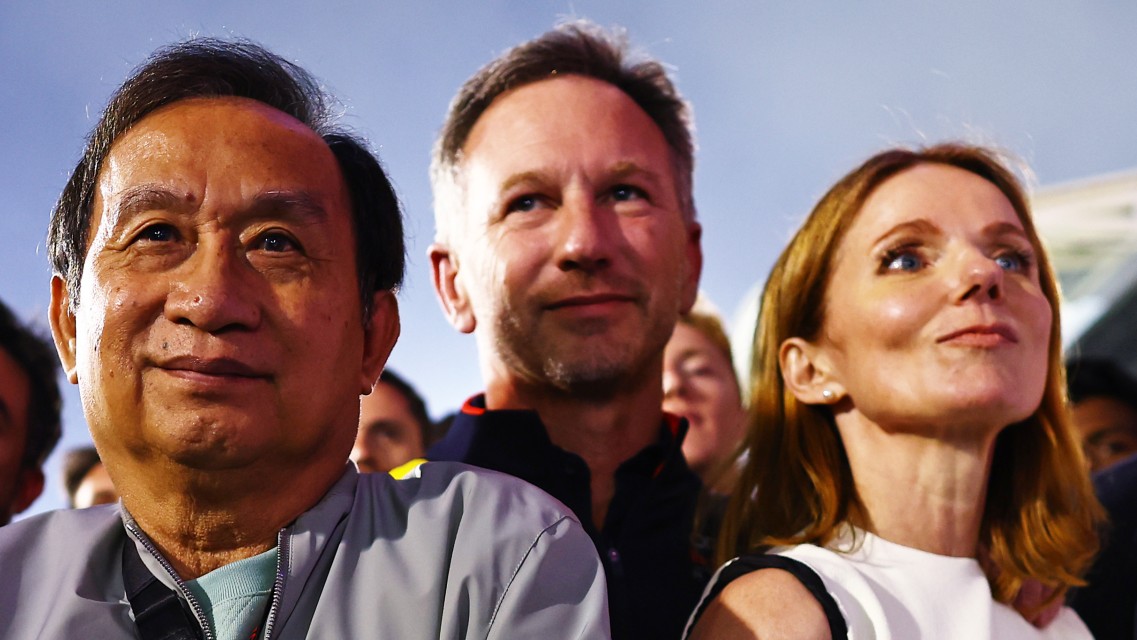 Christian Horner and the Red Bull saga that refuses to go away
Christian Horner and the Red Bull saga that refuses to go awayIn the Spotlight 'Too dizzy-making' even for the 'merry-go-round world of F1'
-
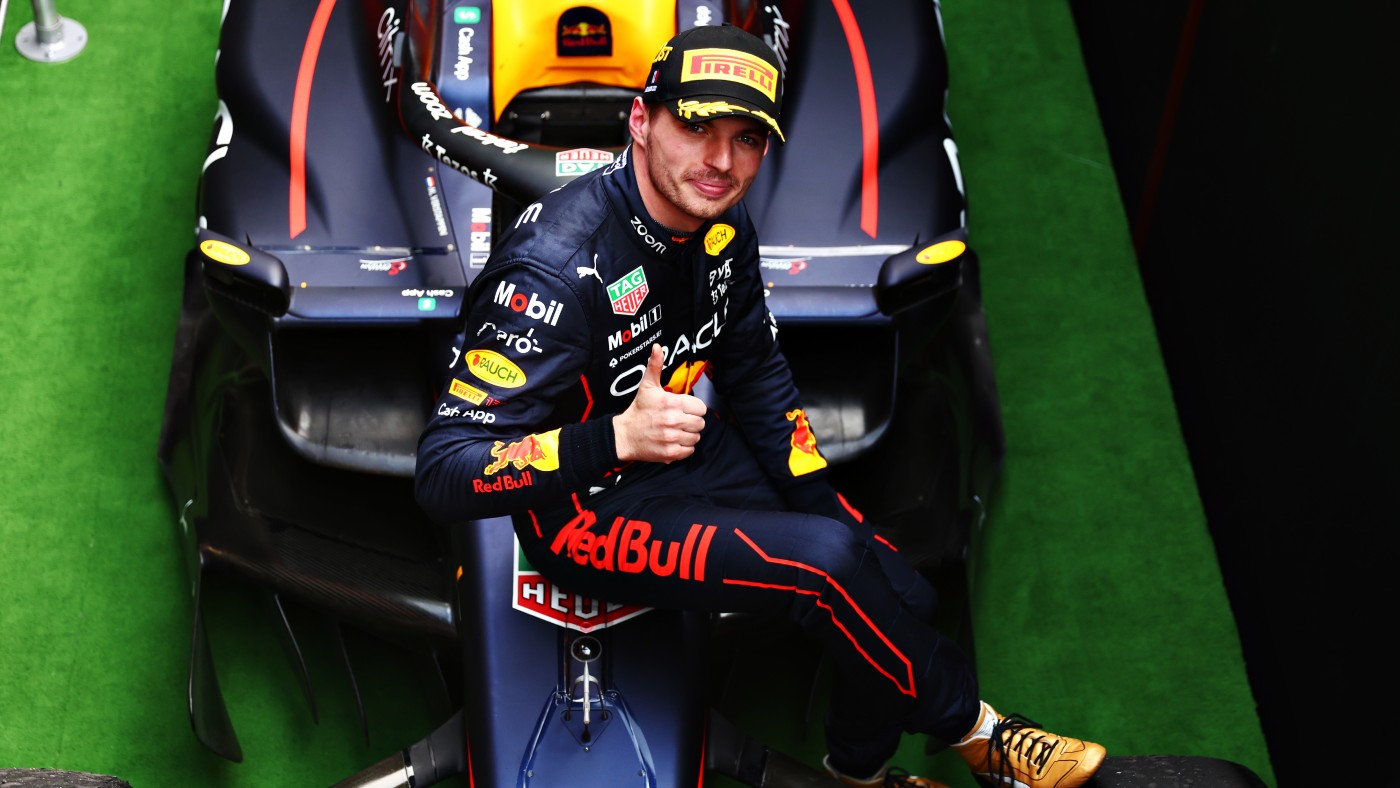 Max Verstappen: F1’s record-breaking world champion
Max Verstappen: F1’s record-breaking world championIn the Spotlight Red Bull star has surpassed records set by Schumacher, Vettel and Hamilton
-
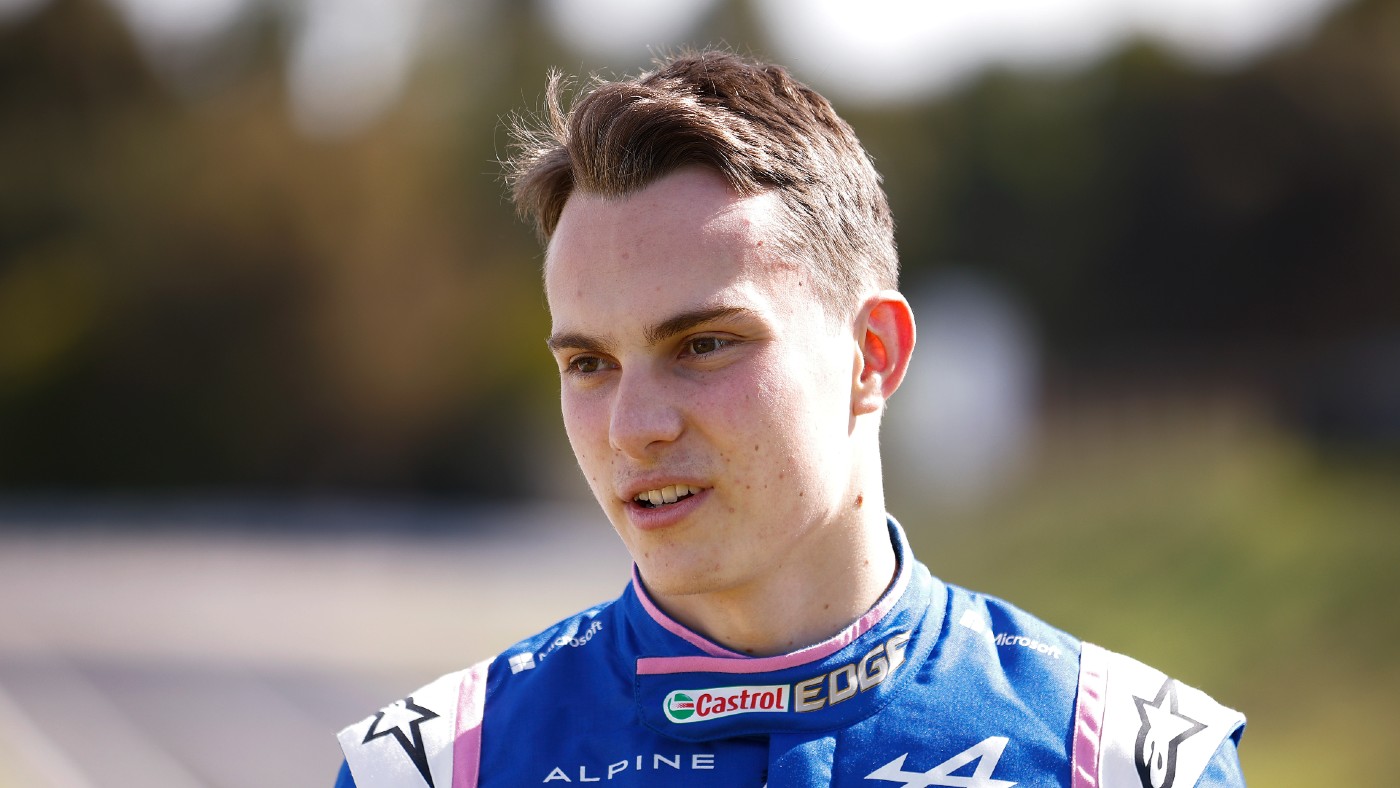 F1 ‘silly season’ hits top speed as 2023 grid takes shape
F1 ‘silly season’ hits top speed as 2023 grid takes shapeUnder the Radar Twitter explodes with news of driver moves, denials and rumours
-
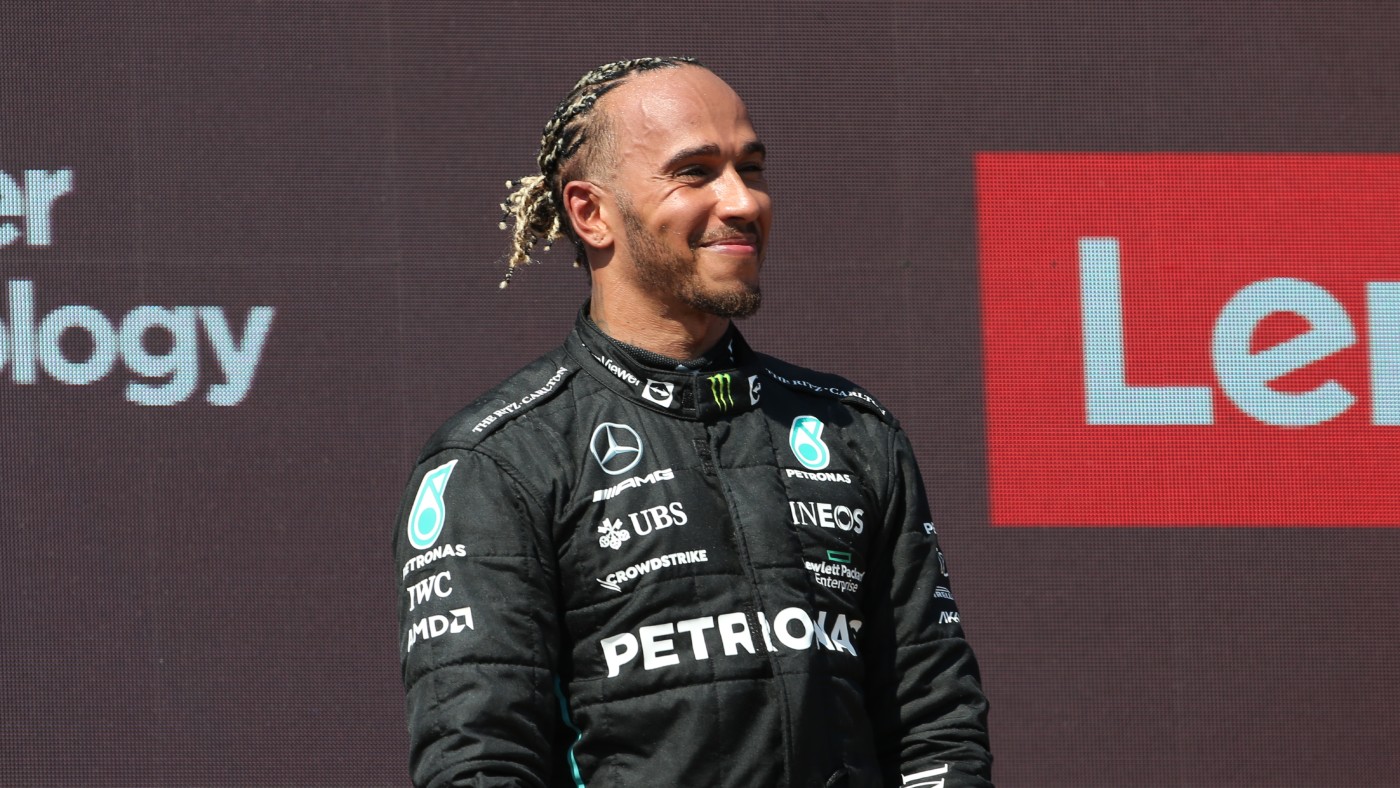 Lewis Hamilton on his F1 future: ‘I have plenty of fuel in the tank’
Lewis Hamilton on his F1 future: ‘I have plenty of fuel in the tank’Under the Radar Seven-time world champion finished second on his 300th grand prix start
-
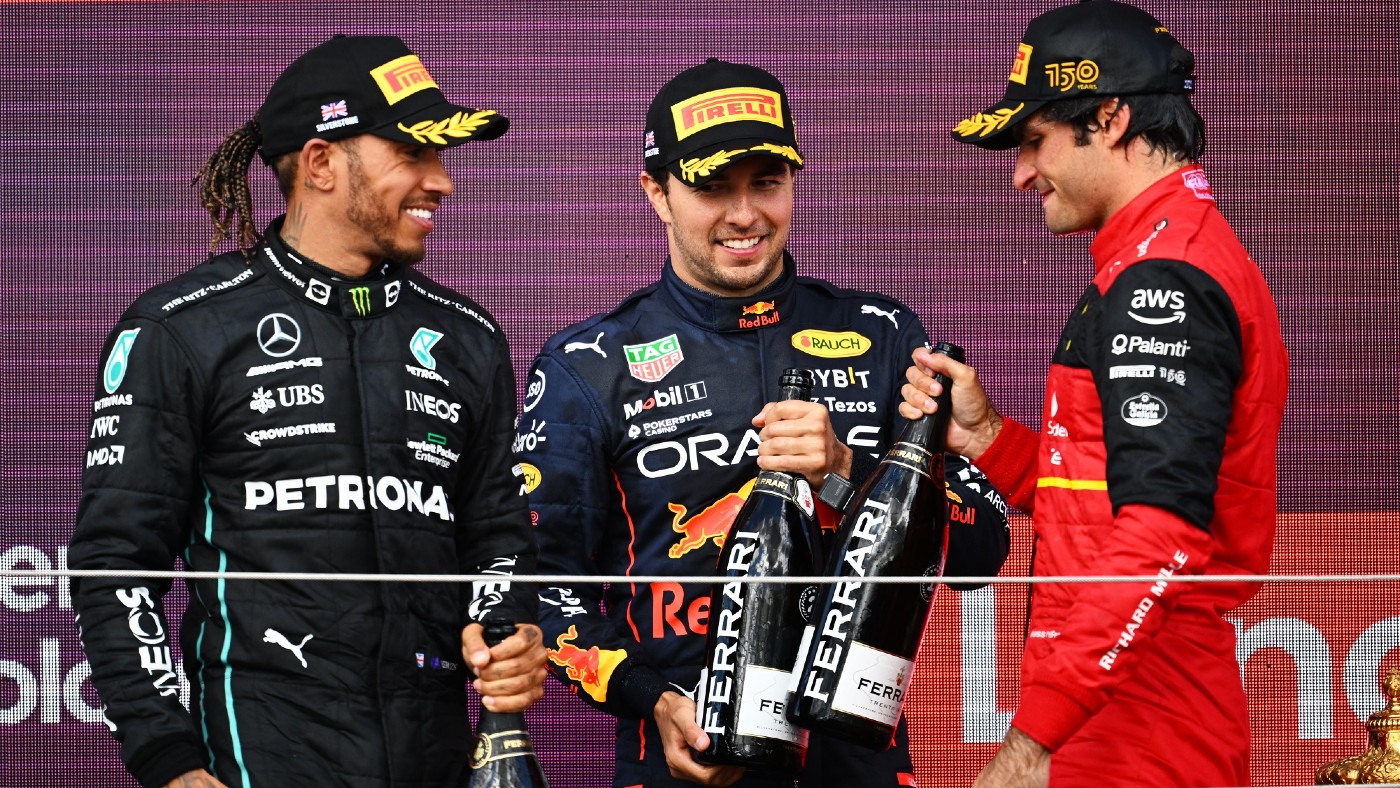 Review: inside F1’s Paddock Club with Ferrari Trento
Review: inside F1’s Paddock Club with Ferrari TrentoUnder the Radar It was a celebration on and off the track at the British GP at Silverstone
-
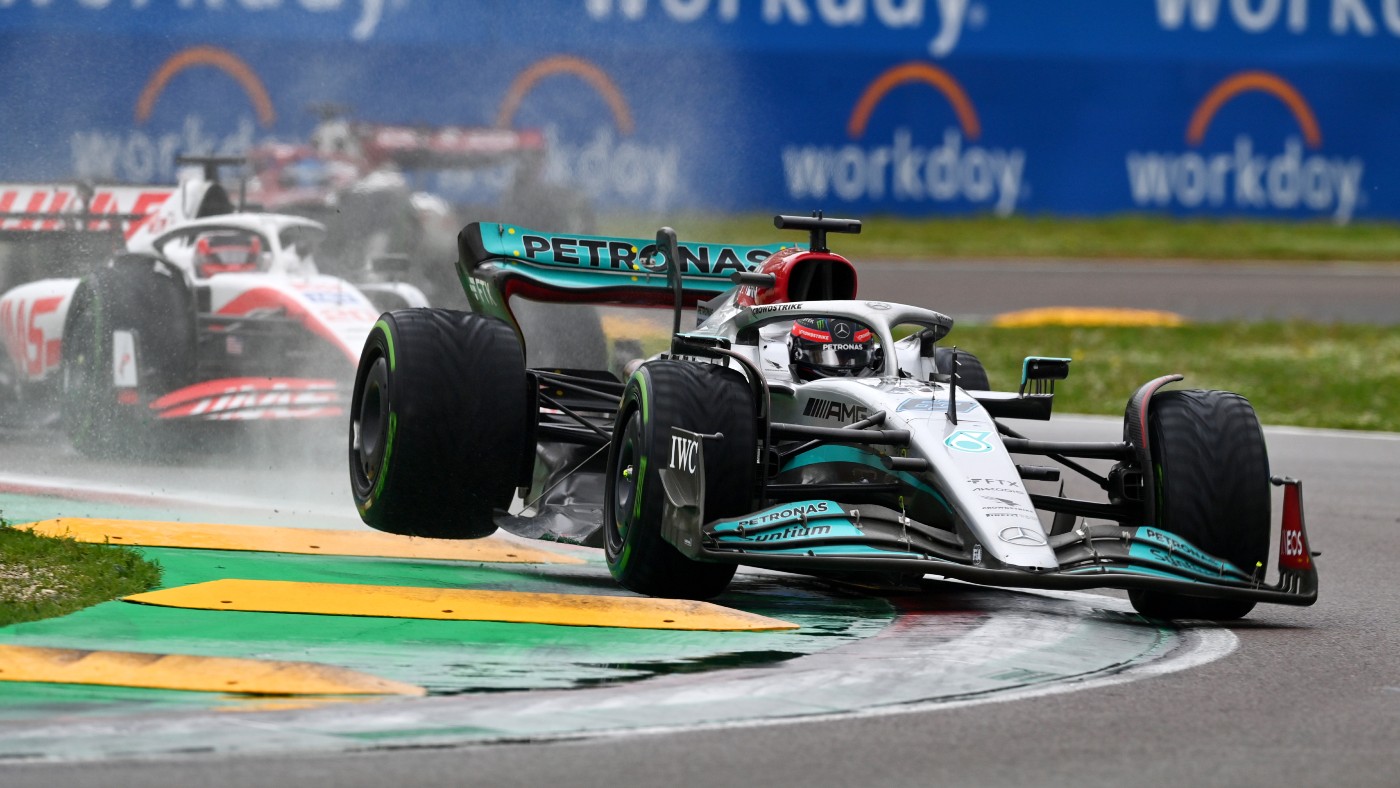 F1: a bumpy start to the season for Mercedes, Lewis Hamilton and George Russell
F1: a bumpy start to the season for Mercedes, Lewis Hamilton and George RussellUnder the Radar Only four races in and Mercedes already look off the pace
-
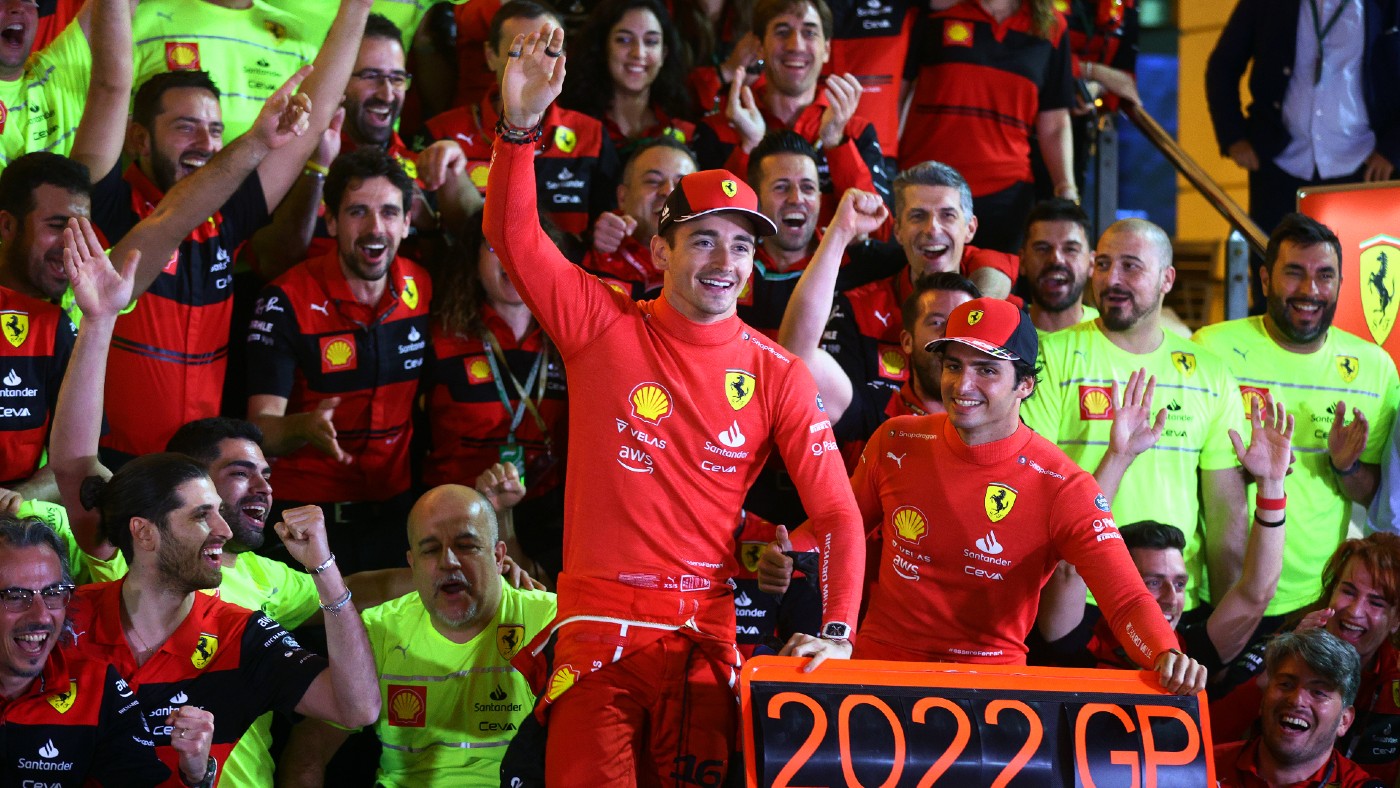 F1 Bahrain GP reactions: Ferrari ‘back with a bang’ as Leclerc ‘tames the beast’
F1 Bahrain GP reactions: Ferrari ‘back with a bang’ as Leclerc ‘tames the beast’feature The Tifosi celebrate a stunning one-two for Charles Leclerc and Carlos Sainz
-
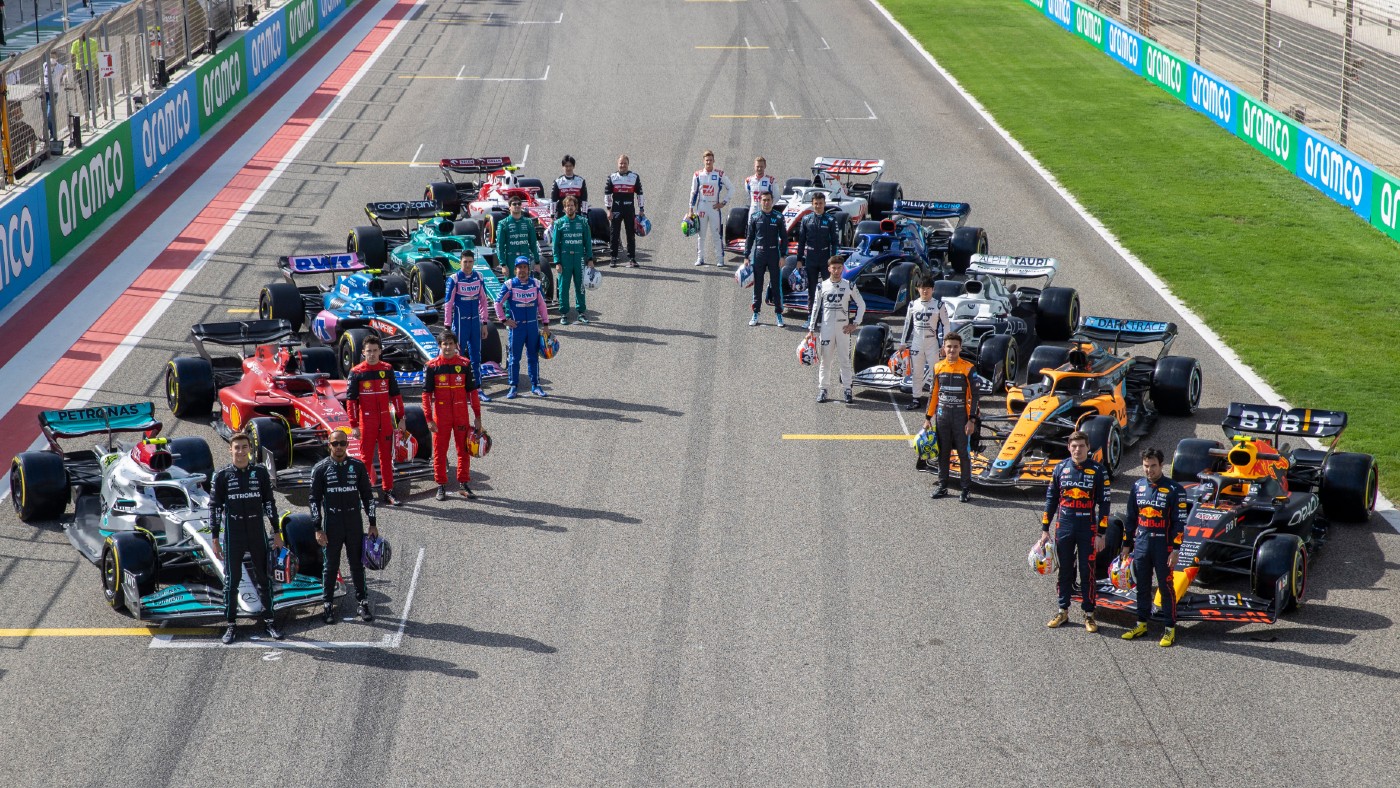 F1 2022 season guide: race calendar, championship standings and 2023 grid
F1 2022 season guide: race calendar, championship standings and 2023 gridfeature Max Verstappen has now won 14 of this season’s 20 grands prix